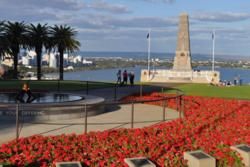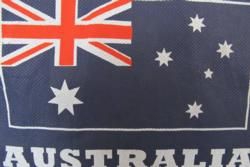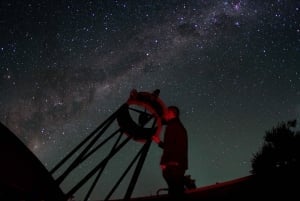School and Public Holidays 2014
Most of WA's school and public holidays commemorate important Australian historical events or religious celebrations. Typically, each year has about 10 public holidays. Please note that if a public holiday falls on a weekend, the first working day which follows will also be regarded as a public holiday.
WA Public Holidays
2014
New Year's Day - Wednesday 1 January
Australia Day - Monday 27 January
Labour Day - Monday 3 March
Good Friday - Friday 18 April
Easter Monday - Monday 21 April
ANZAC Day - Friday 25 April
WA Day - Monday 2 June
Queen' Birthday - Monday 29 September
Christmas Day - Thursday 25 December
Boxing Day - Friday 26 December
(Source: Department of Commerce - Public Holidays in Western Australia)
WA School Holidays (for students in Primary & Secondary Public Schools)
2014
Term 1 opens on 3 February
Term 1 Break - Saturday 12 April - Sunday 27 April
Term 2 Break - Saturday 5 July - Sunday 20 July
Term 3 Break - Saturday 27 September - Sunday 12 October
Term 4 ends on Thursday 18 December
(Source: Department of Education - School Term Dates)
Significance of some of Australia's Public Holidays
1. Australia Day
Australia Day is the official national day of Australia. It started off as a day that commemorated the beginning of British white settlement in Australia. On 26 January 1788, Captain Arthur Phillip, commander of the first fleet of 11 convict ships from Great Britain and first governor of New South Wales, landed at Sydney Cove. In the 19th century, some Sydney immigrants who had gained wealth, began holding an annual dinner to celebrate their freedom and love for their new home - Australia. However, it was only in 1994 that all Australian States and territories began consistently celebrating Australia Day as a public holiday on Jan 26. In more recent times, the focus of Australia Day has been on celebrating what it means to be "Australian"; the emphasis has now shifted to one that acknowledges the diversity of an increasingly multicultural Australian society. For some indigenous people however, this is a day of mourning and not celebration; instead they call Australia Day "Invasion Day" as it commemorates colonization which later led to the loss of their people's freedom and lands. Since the 1830's, Aboriginal people have held protests on Australia Day to draw attention to the inequalities and treatment that they have received. In very recent times however, this spirit of mourning has been gradually evolving into one that celebrates the Aboriginals' and Torres Strait Islanders' resilience and hope for the future; thus for some of them Australia Day is known as "Survival Day".
The Australia Day awards are given out on this day to to Australians who have contributed in various ways to society. On this day, many events are held across the country such as aboriginal cleansing ceremonies, aboriginal protests, citizenship ceremonies, spectacular firework displays, parades, community festivals and music and dance performances. The Prime Minister and Governor General of Australia also address the nation. And with the beautiful summery weather, many Australians are traditionally tempted to enjoy this day at the beach with their families and friends. In Perth, major events like the City of Perth Australia Day Skyworks, a magnificient 30-minute display of state of the art fireworks synchronized with music, is held on the Swan River every year.
2. ANZAC Day
ANZAC Day began as a day that was held in honour of the ANZAC (Australian and New Zealand Army Corps) military servicemen who sacrificed their lives for their country at Gallipoli, Turkey in World War 1. On 25 April 1915, ANZAC forces landed at Gallipoli and began their protracted war against the Ottoman Empire, which was an ally of Germany. The ANZAC forces sustained heavy losses which resulted in severe defeat at the hands of the Ottoman Turks. Over time, ANZAC Day has come to serve as a national day of commemoration for all Australians who sacrificed their lives not just at Gallipoli but also all subsequent wars. It is a day of remembrance, reflection and appreciation for the values of courage, loyalty (mateship) and sacrifice. Solemn services and ceremonies are held all over Australia to acknowledge the service of all Australian veterans. Red Poppy flowers, the symbol of the sacrifice of shed blood, are used as in wreaths and to adorn memorials.
3. WA Day (formerly known as Foundation Day)
The official date of WA Day is 1 June but it is celebrated every year on the first Monday in June. Originally, it commemorated the foundation of the Swan River colony in 1829 i.e. the establishment of the first permanent British colony which consisted of some officials and many civilian settlers, in Western Australia. Prior to that, several explorations, led by Admiral Sir James Stirling, had surveyed the western coast of Australia and this resulted in his recommendation that a permanent settlement be established in the Swan River area. It was 1 June 1829 when West Australia's coastline was first sighted from the merchant ship Barque Permelia. WA Day is only celebrated in WA. The current focus of WA Day is to pay tribute to all those who have lived in WA before us and to acknowledge the diversity and vibrancy of the state's varied ethnic groups and communities. Many events are held and these include a WA Day breakfast that is hosted by the Governor of WA. Other activities include community events with a historical and cultural emphasis. In 2012, the first WA Day was celebrated after it was officially renamed. Prior to 2012, WA Day was known as Foundation Day.
4. Queen's Birthday
This holiday commemorates the birthday of Her Majesty Queen Elizabeth II who was recognized as the official head of state of Australia. Australia is a constitutional monarchy. Due to Foundation Day being held in June, WA is the only state that celebrates the Queen's birthday in late September or early October every year. The actual date is proclaimed by the WA Governor. Most people will spend time with their families or attend a sporting event on this day. Some will take this opportunity to take a long weekend break.
5. Boxing Day
Boxing Day refers to the day after Christmas. Many theories about the beginnings of Boxing Day exist and its origins remain uncertain to this day. One of the more popular theories refers to the practice among British servants, during Queen Victoria's reign, of carrying boxes to their employers when they first arrived to begin their day's work on the day after Christmas. Coins, regarded as a special end of year gifts, would then be placed on these boxes. This can be linked to the modern day practice of giving out bonuses at the end of each calendar year. Churches also opened their alms/charity boxes and distributed money to the poor on 26 December which was also known as St. Stephen's Day. Boxing Day is mainly celebrated in the UK, Australia, New Zealand, Canada and in some Commonwealth countries. Today Boxing Day is more significant as a Shopping Day. On 26 December, many shops reopen after the Christmas holiday and begin their well known post Christmas sale season when significant price discounts abound and long queues of customers gather. Boxing Day is also extremely important for sports enthusiasts as the traditional cricket test match is conducted at the most hallowed of all cricket grounds in Australia, the MCG (Melbourne Cricket Ground). Aussies really love their sports and many, with their buddies and beer, will stay home to watch the game on their televisions.















